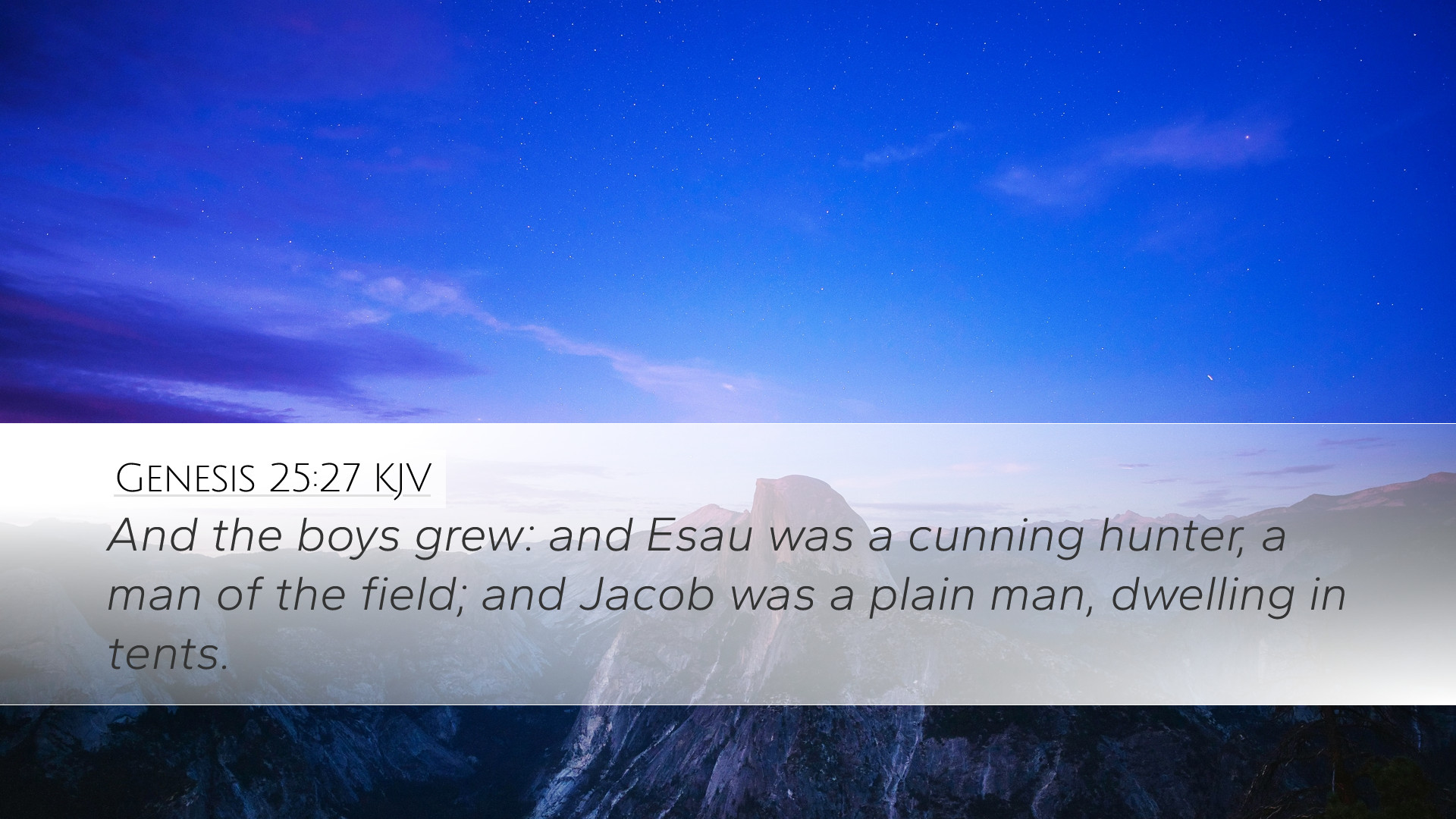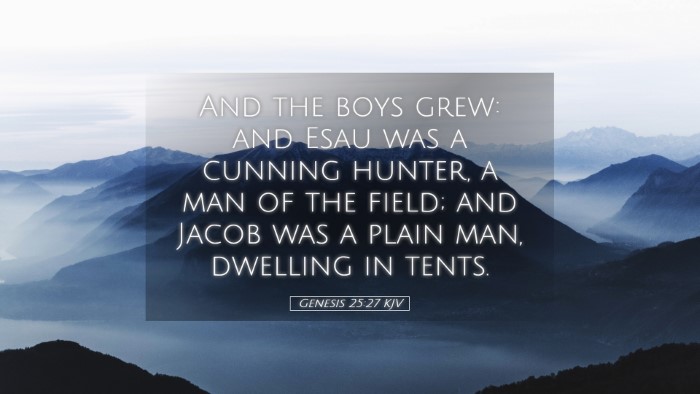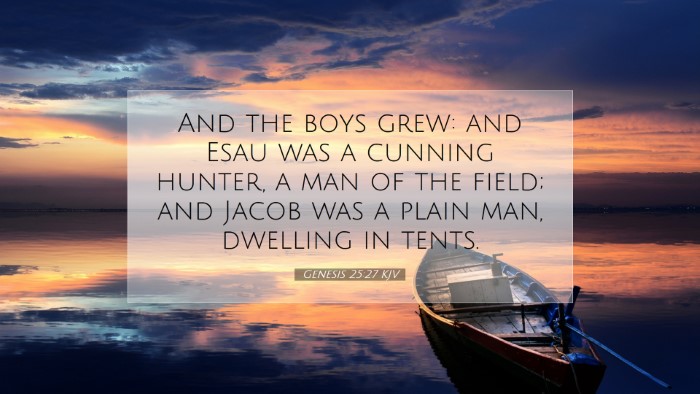Commentary on Genesis 25:27
Genesis 25:27 states: "And the boys grew: and Esau was a cunning hunter, a man of the field; and Jacob was a plain man, dwelling in tents." This verse provides an introduction to the contrasting characters and life choices of the twin brothers, Esau and Jacob. Each of these characters represents not only different lifestyles but also differing spiritual temperaments that carry significant theological implications.
Character Profiles
The first aspect to consider is the characterization of the two sons. Esau is depicted as "a cunning hunter, a man of the field." This description implies a man of action and adventure, one who is at ease in the rough outdoors. Matthew Henry comments on this by stating that Esau loved the ruggedness of life in the open air, engaging with nature, which symbolizes physical strength and a practical mindset.
On the other hand, Jacob is described as "a plain man, dwelling in tents." Adam Clarke elaborates on this portrayal, suggesting that Jacob was more contemplative and domestically inclined, representing a life that was settled and stable. He was involved in the pastoral life, indicative of a man who values peace and family. This distinction is vital, as it reflects fundamental human tendencies toward either the adventurous spirit or the tranquil life.
The Theological Implications
This verse presents a deeper theological exploration of divine choice and human agency. Albert Barnes emphasizes that these personalities were not coincidental but were part of God’s sovereign plan. He notes that God had chosen Jacob over Esau, which serves as a precursor to the larger narrative of Israel's history and its implications for the covenant. This selection highlights themes of grace and election, serving as a reminder that God often chooses the unexpected to fulfill His purposes.
Moreover, looking at the dichotomy between Esau and Jacob offers insight into the human condition, the struggle between spiritual aspirations and earthly desires. Esau, with his inclination towards the material, contrasts sharply with Jacob’s spiritual pursuit, a contrast that permeates the text of Genesis and beyond. Esau's character later represents the earthly, while Jacob embodies the spiritual, and this interplay encourages us to reflect on our own lives and choices.
Applications for Life and Ministry
For pastors, students, and theologians, this text holds significant applications:
- The Nature of Calling: Just as Esau and Jacob were called in different ways, individuals today are called to various forms of service in God’s kingdom. Recognizing and embracing our unique callings is vital for effective ministry.
- Discerning Character: Understanding the depth of character as portrayed in these brothers teaches us about human nature. Esau’s impulsiveness can caution against hasty decisions that neglect spiritual needs, while Jacob’s contemplative approach can remind us of the importance of patience and seeking God first.
- The Struggle Between Flesh and Spirit: This passage represents the ongoing battle within each person between earthly passions and spiritual aspirations. It urges believers to strive for spiritual maturity and prioritize their relationship with God over temporal gains.
- God's Sovereignty and Election: The divine choice of Jacob over Esau serves as a reminder that God’s ways and choices differ from human expectations. This can assure believers of God’s perfect will in their lives, especially in times of uncertainty.
Conclusion
Genesis 25:27 encapsulates profound truths regarding human nature, divine sovereignty, and the Christian life. By studying the lives of Esau and Jacob, we engage deeply with themes of character, choice, and the unfolding narrative of God’s covenant. This text challenges us to consider our own lives in light of these principles and encourages a heart that seeks after God.


